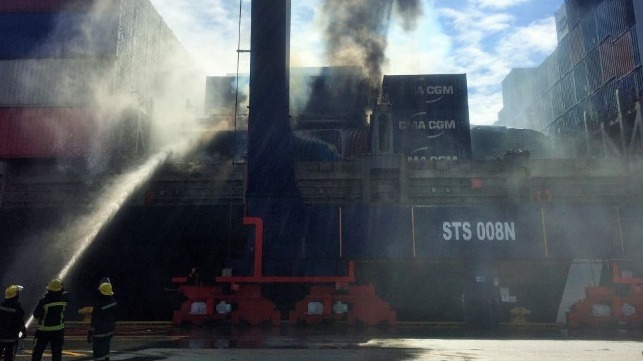World Shipping Council Standardizes Screening for Misdeclared Goods

The World Shipping Council (WSC) has initiated plans to develop a common user tool that will address the recurring problem of misdeclared cargo in the shipping industry and which remains a major cause of marine accidents.
Though most shipping liners have developed their own strategies and solutions to deal with misdeclared cargo including imposing additional fees and AI-based systems, lack of a common industry-wide tool continues to expose shippers to hazards of dangerous cargo that has not been declared or incorrectly declared or labelled. These cargoes have largely been responsible for causing fires and explosions, hurting and even killing vessel crew.
Data show that containership fires have seen a disturbing rise over the past decade, with a notable number resulting in casualties and total losses. The 2023 Allianz Safety and Shipping Review shows there have been 64 reported fires on containerships in the past five years while the TT Club estimates that a serious ship fire occurs every sixty days.
One of the key factors contributing to the fires is hazardous cargo that has not been declared, misdeclared or that has not been properly packed. In 2022, fire-related incidents at sea surged by over 17 percent compared to the previous year.
To tackle the recurring problem, the WSC has embarked on developing a shared industry digital tool for cargo screening and inspections. Dubbed the Cargo Safety Program, the solution will be designed to build on screening processes and policies already in use by carriers. It will marry a common screening tool with a verified shipper database and a database of approved container inspection companies.
The digital tool will be provided and operated by an independent third-party vendor and will be used by all WSC members. Its core function will be to screen booking information against a comprehensive keyword library and risk algorithm. High-risk bookings will be flagged for further investigation and/or inspection.

that matters most
Get the latest maritime news delivered to your inbox daily.
“A common industry approach to cargo safety will create a safer working environment not only for ship crews, but for everyone involved in inland transport or working in ports and terminals, as well as for the communities around us. For shippers, it will make ocean transport more efficient and dependable, by stopping dangerous shipments that can disrupt the supply chain,” said John Butler, WSC President & CEO.
WSC’s membership includes 22 shipping lines accounting for roughly 90 percent of global capacity. The initiative is voluntary and is available to all member companies.
